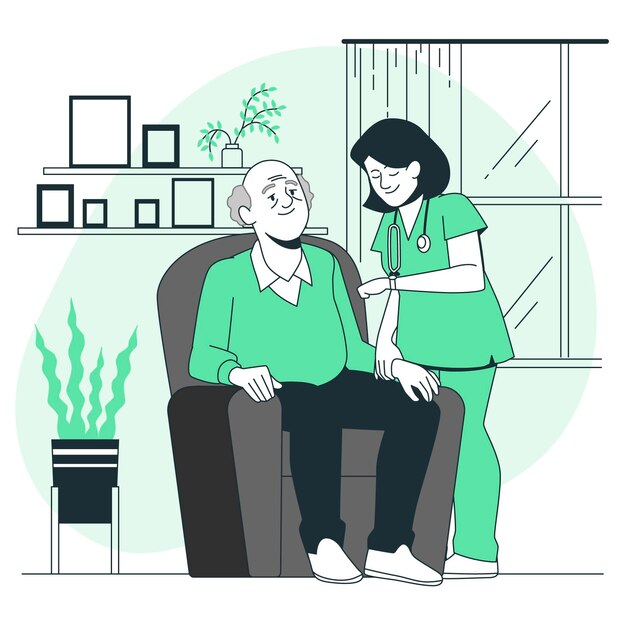Navigating CDPAP: A Comprehensive Guide to New York’s Medicaid Program
Life can be full of challenges, but the greatest adversities lie in witnessing the troubles faced by someone we love dearly. We might often assist them in coping with their hardships, but the fear of not being there for them on a daily basis can be a tough battle. But things are much easier for those residing in New York who have loved ones facing trouble due to their chronic medical conditions or physical disabilities. If your acquaintances meet the criteria for Medicaid, the Consumer Directed Personal Assistance Program (CDPAP) could offer the assistance you need. This article provides an in-depth exploration of what CDPAP entails, the eligibility requirements, and a step-by-step guide on how to apply for this program.
Understanding CDPAP
The Consumer Directed Personal Assistance Program (CDPAP) is a unique initiative under the New York State Medicaid program. It empowers individuals by allowing them to recruit, hire, and direct their own home care workers. Remarkably, one of the distinguishing features of CDPAP is the capacity for consumers to hire family members and friends as their home caregivers. This program is personalized for individuals grappling with chronic medical conditions or physical disabilities, specifically those facing challenges with everyday living activities or requiring skilled nursing assistance.
Eligibility for CDPAP in New York
In order to accomplish the benefits offered by CDPAP, individuals must meet specific criteria set forth by the New York Department of Health:
Medicaid Eligibility: To register themselves as eligible for Medicaid, one should be aged 18 or above.
Need for Assistance: Those dependent on a second party for personal tasks due to a condition or illness.
Assessment: A thorough medical examination by a registered physician is fundamental to authenticate the degree of care required.
Ability to Direct Care: Consumers should have the competency to hire, train, and manage their personal assistants, as well as arrange for back-up coverage and coordinate other services as needed.
Doctor’s Certification: A licensed healthcare provider must certify the need for home care services.
Ability to Self-Direct: The consumer should possess the cognitive and physical ability to direct their own care or appoint a trusted representative.
Residency: CDPAP is a New York State program requiring consumers to be residents of New York.
CDPAP Caregiver Eligibility
Caregivers play a vital role in the success of the CDPAP program. Here are the eligibility criteria for individuals seeking to become CDPAP caregivers:
- Spousal Limitation: The spouse of the care recipient is not qualified to serve as the caregiver.
- Designated Representative: The caregiver cannot simultaneously be the designated representative for the care recipient.
- Physical Exam: CDPAP caregivers must pass a physical exam to ensure they can provide the required care and support.
- Driving Requirements: If driving is part of caregiving duties, caregivers must possess a valid driver’s license and proof of insurance.
- Adherence to Care Plan: Caregivers must agree to adhere to the care plan, completing tasks and responsibilities according to the care recipient’s needs.
- Documentation: Completion of a W-4 form for tax withholding and an I-9 form to verify work eligibility is mandatory.
While there are no specific licensing requirements for CDPAP caregivers, meeting the outlined criteria is essential.
CDPAP Caregiver Responsibilities
In-home caregivers provide essential support to those in need of assistance with daily activities. The specific tasks to be performed by the caregivers can vary depending on the need and preferences of each individual, but here are some common tasks in-home caregivers could be responsible for:
- Personal Care: Assisting with personal hygiene, grooming and getting dressed/undressed.
- Mobility Assistance: Helping getting in and out of a bed, chair, or vehicle and assistance walking.
- Meal Prep: Plan and make meals appropriate for clients’ dietary needs.
- Household Chores: Grocery shopping, organizing a safe & comfortable living environment and light housekeeping, such as laundry.
- Companionship: Engaging in conversation, playing games and providing support by joining at appointments or while running errands.
- Respite Care: Filling in as temporary relief to the primary caregivers to prevent caregiver burnout.
Medicaid Eligibility in New York
In New York, the main factors determining eligibility for Medicaid are family size, income, and unique circumstances. The main requirements include being a New York resident, a citizen of the United States, a permanent resident, or a lawful alien in need of insurance or health care assistance. Pregnancy, needing to care for a child under the age of eighteen, blindness, infirmity, or being 65 years of age or older are among the specific requirements. A birth certificate, evidence of citizenship, evidence of income, copies of bank statements, proof of residency, and, if relevant, proof of other insurance is among the documents needed for Medicaid applications.
Applying for New York Medicaid
If you meet the eligibility criteria, you can proceed with your Medicaid application. Before submitting the application, ensure you have all necessary documentation:
- Birth certificate
- Proof of citizenship
- Proof of income (Tax return, pay stubs, Social Security, or any other income source)
- Copies of bank statements for proof of assets
- Proof of residence
- Proof of other insurance (if applicable)
You can apply for NY Medicaid through the NY State of Health, a Managed Care Organization (MCO), by calling the Medicaid Helpline at (800) 541-2831 or through your Local Department of Social Services Office.
The CDPAP provides a personalized and empowering approach to in-home care. For individuals looking for specialized home care services, the CDPAP offers an opportunity to receive support from those near and dear to them. Investigating the potential of CDPAP if you or a loved one satisfies the eligibility requirements could be a game-changing move toward controlling health and well-being with greater control and autonomy.

